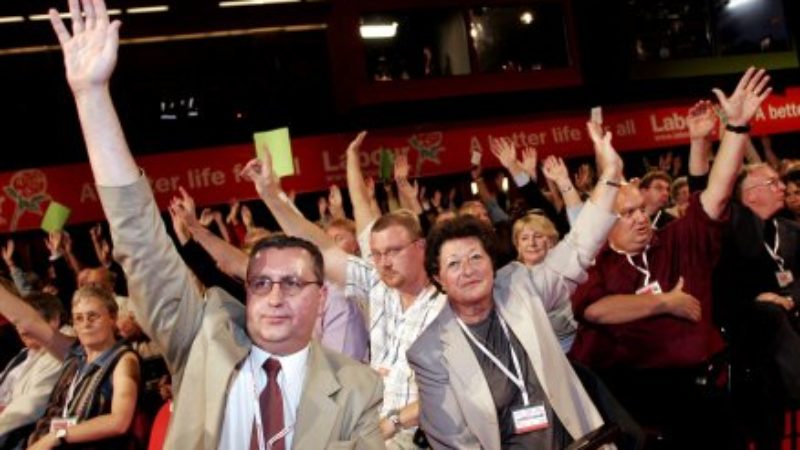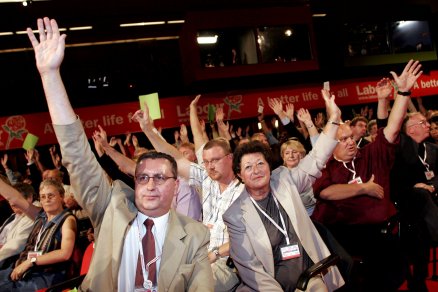

Delegates to the Labour Party conference in Brighton were blinking in unseasonably hot late September sunshine yesterday afternoon. But in a way they were blinking at the emerging reality around them too. The mood outside the Grand Hotel reminded me a bit of Freshers’ Week at university: there was nervousness, anticipation, some humour, some optimism, and some despair. A tour of bars and parties confirmed that the spectrum of opinion ran from near euphoric to bleak.
It is a jittery and confusing moment for the party. The result of the leadership contest has sunk in, just about. But for many this is new territory. For others it is a reminder of territory they thought they would not have to explore again. Both party members and media are having to get used to language and terminology they have either never heard or, at least, not heard for a long time. Some people’s heads are already hurting and this is before the serious drinking has even begun.
Jeremy Corbyn’s style and tone have, perhaps only temporarily and probably only partially, disarmed some critics. He is speaking over the heads of Westminster insiders to the general public. His performance – can you even use that word? – on the Marr show went down well. There is still some novelty in having an ungroomed leader accepting that many in his party disagree with him and that he is not going to try and impose his personal view. There is less point in shouting “Split!” if the leader’s response is: “Well, yes, and that’s fine.”
But you cannot have a free vote on everything, and you cannot have a leader who celebrates his powerlessness indefinitely. This does not feel like a settled state of affairs. Hence the speculative chat about how long this can go on, when a deadline for action might come, and what the party’s response (both in parliament and beyond) might be.
The most striking conversation I had yesterday was with a senior trade union figure, who admitted to having some doubts about the Corbyn leadership, but who nonetheless welcomed this new situation as a way of “giving the party a good shake”. He wasn’t making any predictions. But he looked forward to a more vigorous debate over policy and, I think, quite liked the idea of having somebody older at the head of the party as well. Corbyn’s more down-to-earth messages could, he felt, play well with people who had lost interest or faith in Westminster politics.
Pessimists I spoke to felt that serious and possibly irreparable damage has already been done. Others were more guardedly nervous. But some were still in the “give the guy a chance” camp, respecting Corbyn’s massive victory and trying to be positive. All shades of opinion could readily be found.
It is as if the party is on the brink of a lively but uncertain adventure, in which history offers little guidance as to what we can expect. The unexpected (and for some the unthinkable) happened on September 12, and perhaps it will again now.
It’s not a game. It’s serious. People’s lives are affected by what government decides, and our system is based on there being an effective opposition. And yet all the uncertainty and nervous excitement combined to recall another moment from even further back in my youth – that bit in Maurice Sendak’s story ‘Where the Wild Things Are’ when the boy Max on his nocturnal adventure declares: “Let the wild rumpus start!”
I think the Labour Party may be in for a bit of an extended rumpus. As Bette Davis once advised: “Fasten your seatbelts. It’s going to be a bumpy night.”




More from LabourList
SPONSORED: ‘Industrial hemp and the challenge of turning Labour’s priorities into practice’
‘A day is a long time in politics, so we need ‘action this day’’
Strong support for child social media ban among Labour members, poll reveals